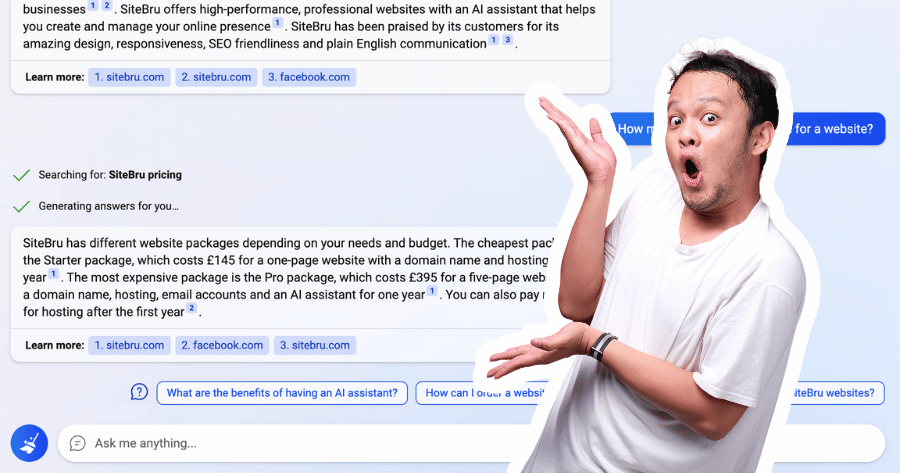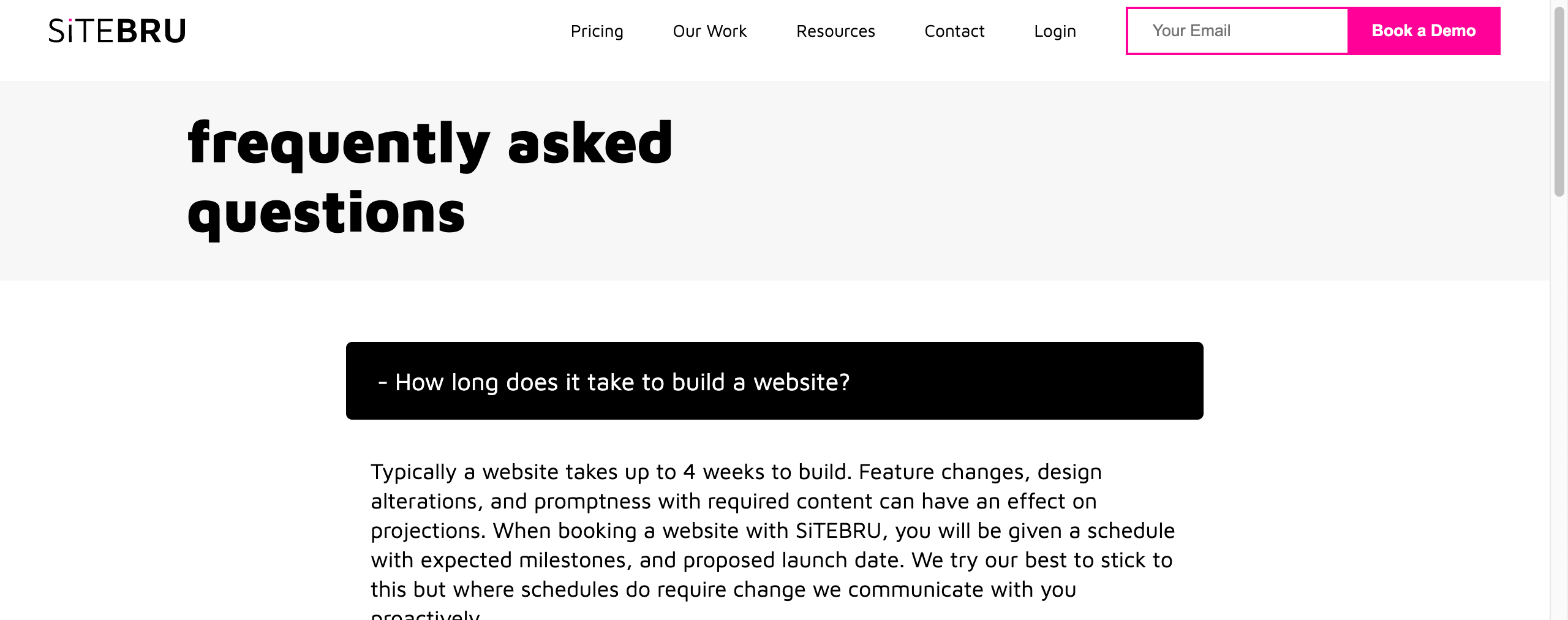How to optimise your website for AI search like Bing Chat and Google Bard

As a business owner, keeping up with the latest trends and technologies is essential to attract customers through search engines. One significant development underway right now is the introduction of AI search, with Microsoft's Bing Chat built on OpenAI and Google's announcement of Google Bard.
To stay ahead of the game, you need to adapt your SEO strategy and optimise your website for AI search algorithms. In this article, we'll provide you with practical tips and best practices for preparing your website for AI search. These include structuring your content, using relevant keywords and phrases, and providing rich contextual information such as metadata and structured data. We'll explain everything in easy-to-understand language, so even if you're not a tech expert, you'll be able to follow our advice. Let's dive in and get your website ready for the future of search!
Understanding AI search
If you want to optimise your website for AI search, you first need to understand how it works. AI search algorithms are designed to understand user intent, which means they try to figure out what users are really looking for when they type a query into a search engine.
To do this, AI search algorithms use natural language processing (NLP) to analyse the words and phrases in the search query and identify the most relevant information. They also take into account the context of the search, such as the user's location, search history, and device type.
But AI search goes beyond traditional keyword matching. It also uses machine learning to improve its search results over time. This means that the more people use AI search, the better it gets at understanding user intent and returning relevant results.
So, if you want your website to show up in AI search results, you need to make sure that your content is optimised for user intent and context, not just for specific keywords. This means creating high-quality, informative content that answers the questions your target audience is asking. You also need to make sure that your website is technically optimised for AI search, with clean code, fast loading times, and mobile-friendliness.
In the next section, we'll provide you with actionable tips on how to optimise your website for AI search.
Best practices for optimising your website for AI search
- Understand user intent
To optimise your website for AI search, you need to understand what your target audience is searching for and what questions they're asking. With AI search, users are given examples of what they can ask on the subject to further their interaction, so experiment and aim to answer these prompts.
- Use natural language
Since AI search algorithms use natural language processing to understand user queries, it's important to use natural language in your website content. Avoid keyword stuffing or using jargon that may be unfamiliar to your audience. Instead, write in a conversational tone that reflects how your audience speaks.
- Structure your content
AI search algorithms prefer well-structured content, so make sure that your website content is easy to read and understand. Use headings and subheadings to break up your content and make it more scannable. Use bullet points and numbered lists to make information more digestible.
- Use relevant keywords and phrases
While AI search algorithms don't rely solely on keywords, they're still important for conveying the topic and intent of your content. Use relevant keywords and phrases in your content, but don't overdo it. Keyword stuffing can actually harm your SEO performance.
- Provide rich, contextual information
AI search algorithms love contextual information like metadata and structured data. Make sure your website includes these elements to provide more information about your content and make it easier for AI search algorithms to understand.
- Use FAQs and Testimonials
With AI search, users are looking for more detailed information and real-world experiences. FAQs and testimonials can provide this type of information in a way that's easy for AI search algorithms to understand. Use FAQs to answer common questions about your products or services, and use testimonials to showcase real-world experiences from your satisfied customers.
- Optimize website performance
Website performance is crucial for both user experience and search engine optimisation. Ensure that your website loads quickly, is mobile-friendly, and works well on underpowered devices. Consider implementing a mobile-first design, compressing images and videos, and minifying code to reduce page load times.

Useful (and free) tools and resources for optimising your website for AI search
- Google Search Console & Bing Webmaster Tools
Google Search Console & Bing Webmaster Tools are free tools that provide website owners with insights into how their website is performing in search. They can help you monitor your website's search traffic and identify issues that may be affecting your search rankings.
- Google's People Also Ask feature
To find out what questions your target audience is asking and what information they're searching for, you can use Google's People Also Ask feature. This underrated feature displays related questions to the original search term , and can provide valuable insights into user intent and the types of content you should be creating.
- Structured data testing tool
To ensure that your website's structured data is properly formatted and meets Google's guidelines, you can use Google's Structured Data Testing Tool. This tool can help you identify errors and warnings that may be affecting your search performance.
- Mobile-friendly testing tool
To check if your website is mobile-friendly, you can use Google's Lighthouse test tool. This tool can help you identify issues that may be affecting your website's mobile performance, such as slow loading times or unresponsive design.
- Content analysis tools
To analyse your website's content and identify areas for improvement, you can use content analysis tools like SEMrush or Ahrefs. These tools can help you identify issues with your website's content, such as duplicate content, thin content, or missing meta descriptions.
- ChatGPT
ChatGPT is an AI-powered tool that can help you optimise your website's content for AI search. Simply paste your content into the tool and ask it to make suggestions for improvement. While CHatGPT may not always be accurate, it can sometimes highlight obvious improvements that you may have missed.
Learn More
Read our blog 'How to use ChatGPT to write website faqs' to learn more about using ChatGPT and other free tools to create content optimised for Search AI.
Summary
As AI search becomes more popular, it's essential to optimise your website in preperation. By following the best practices outlined in this article, you can ensure that your website is structured, formatted, and optimised for AI search, helping you attract more customers.
It's important to keep in mind that AI search will introduce more competition to results, as AI Search aims to provide the most relevant and useful information to users. As a result, it's essential to double down on the many tactics you're already using for traditional search engine optimisation.
Remember to focus on understanding your potential customers intent. Use the tools and resources outlined in this article to help you monitor your website's performance and identify areas for improvement.
Index
Get a professional website built-for-you
Take the stress out of getting your business online with a new website
Built-For-You
100% Satisfaction
High-Performance
Mobile First
Top Support
AI Assistant
